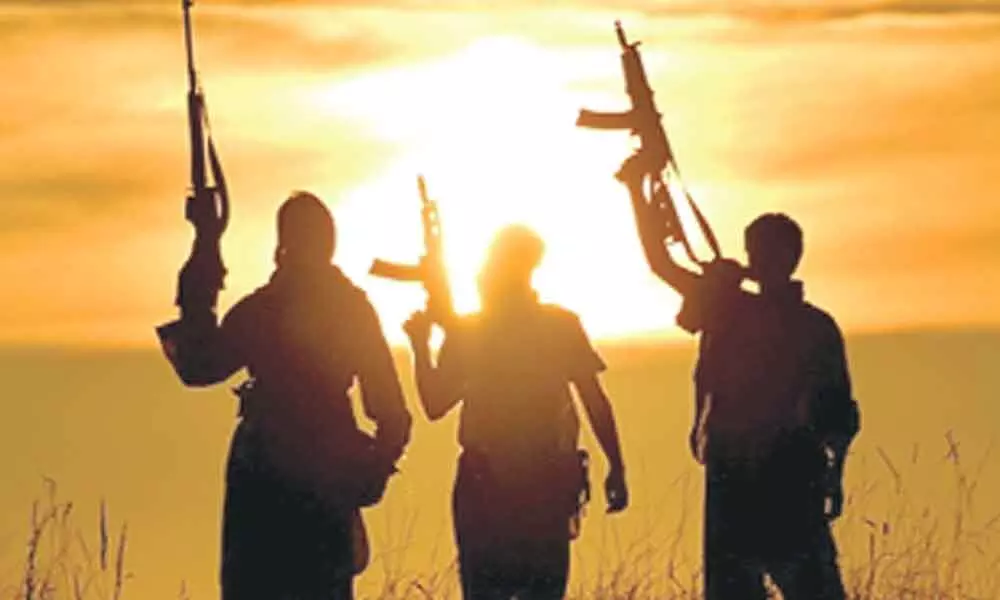SCO Summit: Commitment To Combat Terrorism And Address Financing, India's Stance On BRI Unchanged

Representational Image
- New Delhi Declaration outlines joint actions against terrorism, separatism, and extremism while India refrains from endorsing China's BRI
- India's concerns over BRI persist due to CPEC passing through Pakistan-occupied Kashmir
On Tuesday, the Shanghai Cooperation Organisation (SCO) made a commitment to combat the proliferation of terrorism and address the issue of financing for such activities. However, India refrained from endorsing China's Belt and Road Initiative (BRI), unlike the other members of the organization.
The New Delhi Declaration, issued following the virtual SCO Summit hosted by India, outlined the collective actions member states will undertake to combat terrorism, separatism, and extremism. These measures include actively working to eradicate the conditions that promote terrorism, disrupting channels of terror financing, and suppressing recruitment activities and the cross-border movement of terrorists.
As per the joint declaration, the SCO members pledged to eliminate sleeper cells and terrorist safe havens, as well as counter the radicalization of youth and the dissemination of terrorist ideology. The declaration was issued shortly after Prime Minister Narendra Modi emphasized in his opening remarks at the summit that the group should not hesitate to criticize countries that employ terrorism as a tool of policy.
However, India chose not to join Kazakhstan, Kyrgyzstan, Pakistan, Russia, Tajikistan, and Uzbekistan in reiterating their support for China's Belt and Road Initiative (BRI), a prominent connectivity project. The joint declaration acknowledged the endorsement of these countries for ongoing collaborative efforts in implementing the initiative, including linking BRI with the construction of the Eurasian Economic Union.
India stands among the select countries that have refrained from endorsing the Belt and Road Initiative (BRI), primarily due to concerns related to the China-Pakistan Economic Corridor (CPEC) passing through Pakistan-occupied Kashmir. Indian officials have consistently expressed apprehensions about the debt burden imposed on nations in the region through BRI projects.
In the joint statement, the SCO member states acknowledged the importance of not interfering in the internal affairs of nations under the pretext of combating terrorism and extremism. They also emphasized the unacceptability of exploiting terrorist, extremist, and radical groups for personal gain.
The member states emphasized the need for collective efforts by the international community to counter the involvement of youth by terrorist, separatist, and extremist organizations. Additionally, they highlighted the significance of preventing the propagation of religious intolerance, aggressive nationalism, ethnic and racial discrimination, xenophobia, fascism, and chauvinism. The joint declaration underscored the necessity of united action against terrorist and extremist groups while promoting a global environment that rejects such ideologies.
The member states of the SCO highlighted the urgent need for a prompt resolution to the situation in Afghanistan, recognizing it as a crucial factor in bolstering stability within the SCO region. They emphasized the importance of constructing Afghanistan as an independent, neutral, unified, democratic, and peaceful state, free from the perils of terrorism, warfare, and narcotics.
According to the joint declaration, the formation of an inclusive government in Afghanistan, encompassing all ethnic, religious, and political groups, is imperative. The international community should collaborate to facilitate the safe and sustainable repatriation of Afghan refugees, ensuring their dignity is preserved upon returning to their homeland.
As Iran officially joined the SCO as its newest member, the member states emphasized the significance of guaranteeing the sustainable implementation of the Joint Comprehensive Plan of Action (JCPOA) pertaining to Iran's nuclear program. In line with the provisions of UN Security Council Resolution 2231, all participants should dutifully fulfill their obligations to comprehensively and effectively implement the agreement, as outlined in the joint declaration.







